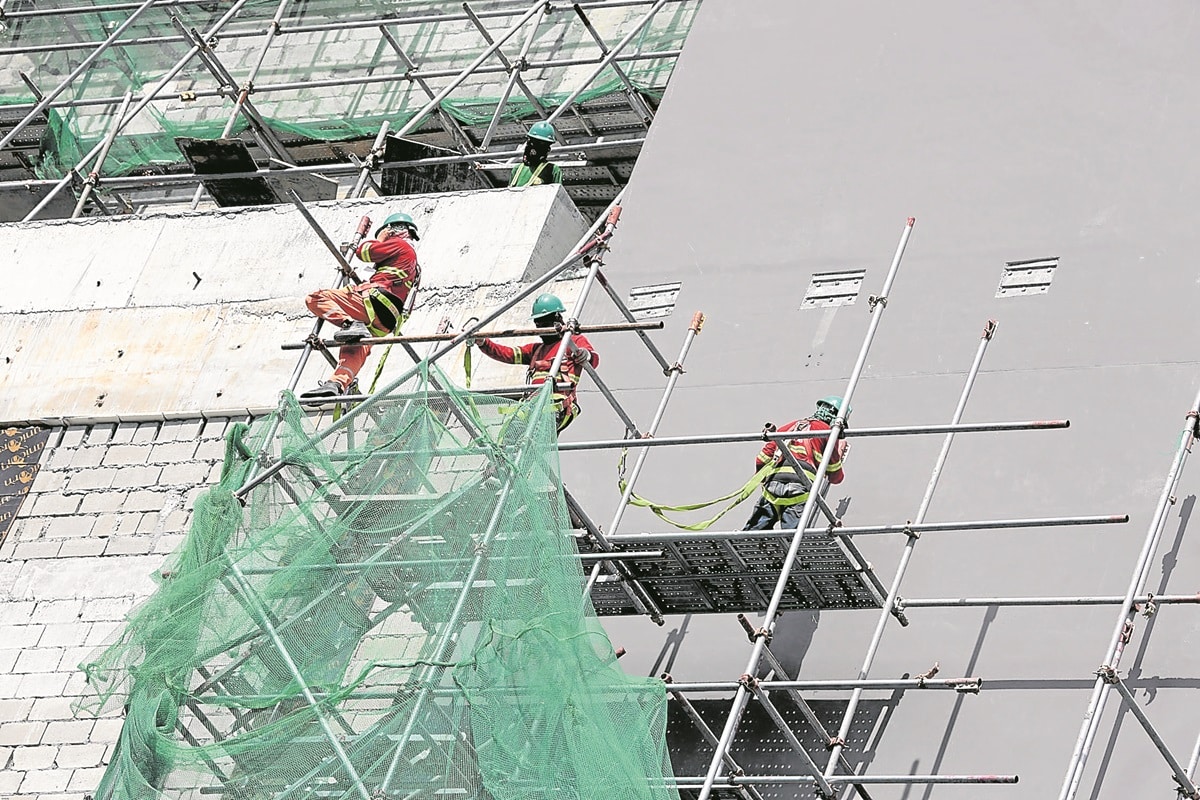
BUILDING BETTER Employing ecolabelling and sustainable public procurement in government infrastructure projects enhances compliance with the Philippine Green Building Code, which establishes standards for environmentally sound construction practices. —Grig C. Montegrande
MANILA, Philippines — The Philippine construction sector is experiencing significant growth, accounting for approximately 7 percent of the national gross domestic product and valued at almost $65.2 billion in 2023. This expansion is driven by government-led initiatives and the surge in private real estate investments.
With urbanization on the rise, the imperative for sustainable practices in infrastructure and construction projects becomes increasingly urgent. The United Nations Environment Programme (Unep) is leading a crucial initiative to transform the construction sector in the Philippines and align it with Sustainable Development Goals 9 (Industry, Innovation, and Infrastructure) and 12 (Responsible Consumption and Production).
In collaboration with the Consumer Information Programme of the One Planet Network and the EcoAdvance project, Unep has launched a call for proposals aimed at increasing the utilization of ecolabels and promoting sustainable public procurement (SPP) within the building and construction sector.
The National Ecolabelling Programme-Green Choice Philippines (NELP-GCP) actively promotes sustainable practices in infrastructure and construction materials by utilizing the ecolabelling criteria for materials such as cement, ceramic tiles, and PVC pipes. Meanwhile, the Philippine Center for Environmental Protection and Sustainable Development enhances green procurement through its programs, capacity-building initiatives, and policy development.
The introduction of ecolabelling and sustainable public procurement in government infrastructure projects has the potential to significantly support the Philippines’ commitment to achieve a 75-percent reduction in greenhouse gas emissions, as outlined in its Nationally Determined Contributions. These strategies enhance compliance with the Philippine Green Building Code, which establishes standards for sustainable construction practices. By providing a framework for selecting verified, eco-friendly materials, NELP-GCP and SPP aim to mitigate the prevalence of unverified green claims in the market, ensuring that government infrastructure projects align with national objectives for sustainable industry development, inclusive growth, and environmental preservation.
Inclusive economy
The connection to SDG 9, which focuses on building resilient infrastructure and fostering sustainable industrialization, is evident in these initiatives. By enhancing sustainability in construction practices, the Philippines is not only addressing immediate environmental challenges but also establishing a foundation for long-term economic resilience. This alignment with SDG 9 is crucial for fostering an economy that is both inclusive and environmentally responsible.
Moreover, SDG 12 emphasizes the need for sustainable consumption and production patterns. The commitment to sustainability is reinforced through policies prioritizing green materials and practices, ultimately contributing to a circular economy that benefits both the environment and the economy.
As part of these ongoing efforts, a kickoff meeting for the EcoAdvance project is scheduled to occur before the end of the year. This meeting will convene key stakeholders from government, the building and construction industry, academe, and civil society to discuss strategies for implementing sustainable practices and enhancing the use of ecolabels in construction.
The Philippines is positioned at a critical juncture where the integration of sustainable practices in the construction sector can drive economic growth while simultaneously addressing pressing environmental challenges. With initiatives such as the NELP-GCP and the promotion of SPP, the nation is advancing toward achieving the ambitious targets outlined in SDGs 9 and 12. As the country progresses, it will not only fulfill its climate commitments but also establish itself as a leader in sustainable development in the region.
Gabriel Cullar is the program research assistant of the environmental advocacy group Philippine Center for Environmental Protection and Sustainable Development Inc.